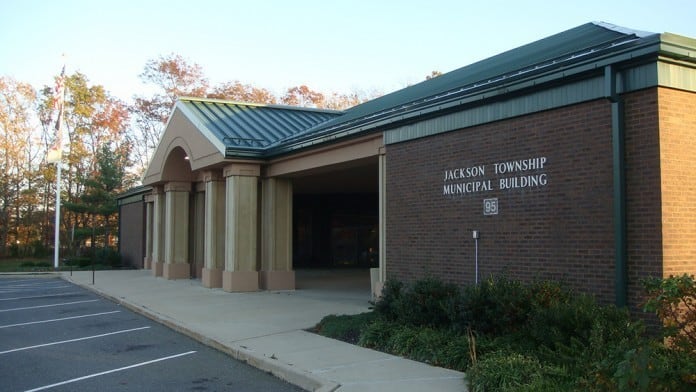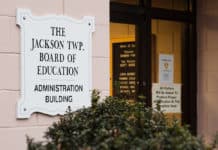
JACKSON – Members of the Township Council unanimously adopted Jackson’s 2019 municipal budget during a recent public hearing. The $44.79 million budget includes an estimated annual tax increase of $30.45 based on the average Jackson home assessed at $327,707.
The budget was prepared by business administrator Terrence Wall with input from Mayor Michael Reina, assistant business Administrator Samantha Novak, assistant municipal treasurer Patricia Schwark and chief financial officer Sharon Pinkava.
Calling it a year-round-process, Wall said last month that “we are doing intelligent budgeting,”
Pinkava said previously that there were offsetting revenues for the spending plan’s added appropriations.
No residents came forward to speak or ask questions about the budget during the public hearing.
The State Department of Community Affairs approves all municipal budgets and reviews financial statements and audits. The budget has two principal components which include an operating budget and capital budget and is organized into two expense categories being salary and wages (S&W) and other expenses (OE). The budget must always balance revenues and expenses.
The township is a collector for other entities as well including for Ocean County, the Board of Education, and the township’s three fire districts. Counties, boards of education and fire districts receive 100 percent of what is anticipated, whether it is collected or not. If someone doesn’t pay their taxes, the township fills in the gap. During the budget’s introduction, Wall said that the township’s tax collection rate is at 98.6 percent.
Last year the council adopted a spending plan that totaled $44.17 million. Several items were later inserted into the budget in accordance with state law that caused the budget to increase to $45.21 million.
In 2018 the township’s miscellaneous revenue exceeded the budget totals by $1,063,881.74. There was an increase in fees and permits, interest on investments and deposits and uniform construction code fees. Unanticipated revenue came to $916,981.95 from a land sale/auction, off duty police work surcharge and from a tower rental.

This year’s budget will be supported in part by the collection of $33 million in taxes from the township’s residential and commercial property owners. The municipal tax rate will increase to 48.6 cents per $100 of assessed valuation.
The owner of an average home assessed at $327,707 will pay approximately $1,592 in municipal taxes.
Miscellaneous anticipated revenue is $6,835,668.48, delinquent taxes is at $1,250,000, the fund balance is $3,703,000 while salary and wages are $20,919,245.03, statutory expenses at $5,340,302.31, debt service is $3,743,692.83 and reserve for uncollected taxes is $2,623,313.58.
The township spent around $423,000 in legal fees last year and $4.12 million on employee group health insurance.
“These are the kind of numbers that the taxpayers expect and demand,” Wall said last month adding that the township traditionally spends lower than it anticipates “but we want to make sure we are funding conservatively.”
Council President Rob Nixon thanked Wall and the rest of the staff who prepared the budget for “helping move Jackson forward” during the April 23 council meeting.
Council members also introduced several ordinances during the night including one that would establish a fund for township parks and playgrounds.
By coincidence two residents came forward during the evening’s public comment period to provide their support and input for improvements to the township’s skate park. Councilman Andrew Kern said this plan will be fleshed out further in May.
An ordinance establishing a 30 mile per hour speed limit along New Central Avenue from South Cooks Bridge Road to North Hope Chapel Road was also introduced.
The Township Council also introduced an ordinance to vacate all of the right, title and interest of the township in a portion of Madden and Edison avenues and a 15-foot alleyway.
Council members also passed several resolutions including the release of a performance guarantee posted by the Walter R. Earle Corporation for property on 630 South Hope Chapel Road.
A contract was also awarded to Potty Pros for portable restroom rentals in an amount not to exceed $25,000.
Nixon read a proclamation that recognized Arbor Day early on in the session. Arbor Day was founded in 1872 by J. Sterling Morton in Nebraska City, Nebraska. During the 1920s, each state in America approved public laws that designated a day to be Arbor Day or Arbor and Bird Day observance.






